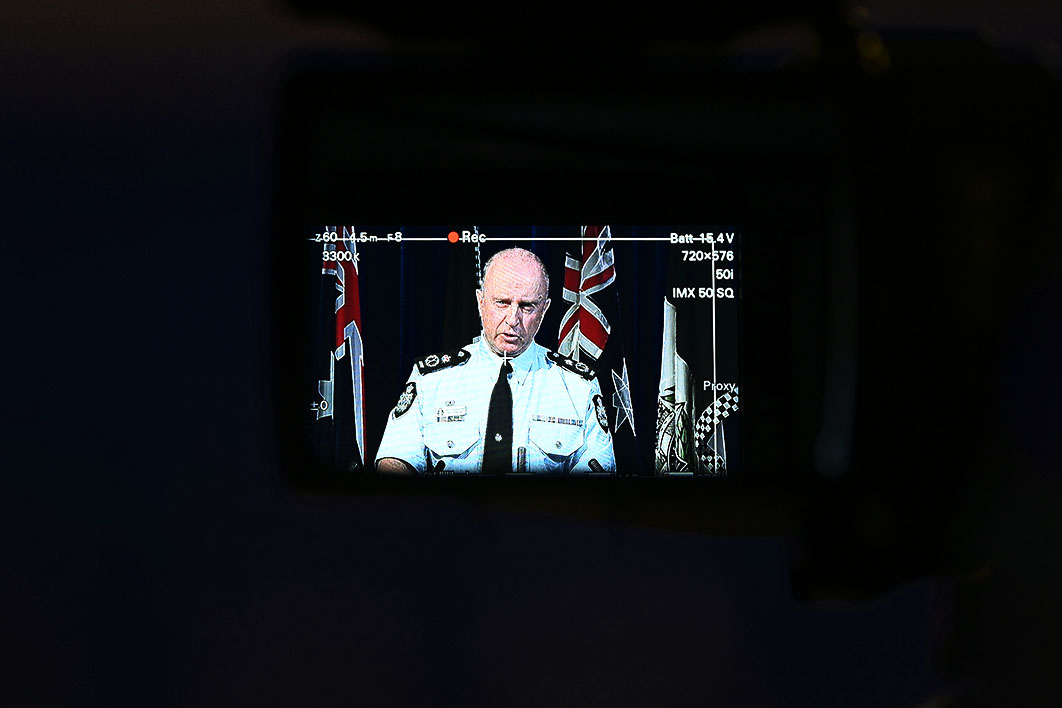https://thenewdaily.com.au/money/finance-news/2019/10/17/treasurer-and-rba-still-at-war/
There is smoke coming from the economic house – some see sparks and flames.
Fire chief Josh Frydenberg says he can’t smell the smoke and dismisses all reports of fire. He’s refusing to turn on his Treasury hose, even though it’s plugged into the water mains.
So with the IMF joining the chorus warning about our economic health and the public disagreements between the Treasurer and Governor about what needs to be done, how bad has the relationship between the two key arms of economic policy become?
But first the IMF downgrade of our prospects. It is serious, though it shouldn’t come as too much of a surprise.
And it has been misreported by some media. It might sound pernickety, but the IMF downgraded its Australian 2019 calendar growth forecast from 2.1 per cent six months ago to 1.7 per cent.
That has been compared with the federal budget’s forecast of 2.75 per cent growth for the 2019-20 financial year. It’s not quite the same thing.
You might think forecasting 2019 with only one quarter to go shouldn’t be difficult, but knocking off 0.4 points in six months actually makes the extent of the downturn – the smoke and sparks – more stark.
And it can be compared with the RBA’s calendar year forecasts published in May and August. (The RBA and Treasury public forecasts can differ a little, but not much as they sup from the same joint-forecasting council bowl.)
Five months ago, the RBA growth prediction of 2 per cent for 2019 was within the rounding of the IMF’s 2.1 forecast.
The RBA stuck with 2 per cent just two months ago, but it’s been slapped by the IMF’s 1.7 per cent.
Along with our biggest domestic problem of real take-home wages going backwards, the retail recession and the slowing international economy the IMF is particularly worried about, it all adds to the need for the RBA and federal government to be pulling in the same direction.
https://thenewdaily.com.au/money/work/2019/10/17/unemployment-figures-marginally-attached-australia/
Australia’s jobless rate dipped slightly on Thursday from 5.3 per cent to 5.2 per cent.
That’s around 709,000 people officially unemployed in Australia.
While any reduction in unemployment is generally to be welcomed, one economist reckons there’s little to cheer about, arguing that the 709,000 figure is a myth, and that our true number of unemployed is more like a staggering 2.9 million people.
And that is down largely to a shadowy, little-known group called the “marginally attached” which comprises around 1.055 million Australians.
The marginally attached is a group that is counted among neither the unemployed nor the underemployed.
They are people who would like to work, and are available to work, but aren’t looking, mainly because they think there are no jobs for them.
Dr Stanford said if you count the marginally attached, our unemployment rate would be a touch under 12 per cent – not the 5.2 per cent commonly used.
He also argues that if you include the “underemployed” – people working some hours, but who would like to work more – the unemployment rate tops 19.7 per cent, based on the September numbers of underemployed of 1.139 million people.
Dr Stanford said combining the marginally attached and underemployed with the officially unemployed provided a truer picture of the jobs market.
“This says to me that one in five potential workers in Australia, or about 20 per cent, are people who want to work, want to work more, aren’t working at all, or working less than they want to,” Dr Stanford said.
“The reality is there’s an enormous pile of people who could work and contribute enormously to our economic performance, but are sitting on the sidelines.”
https://www.abc.net.au/news/2019-10-18/household-debt-leaves-australians-working-longer-spending-less/11608016
Australians have the world's second largest household debts. We know it, we worry about it, and there is increasing evidence it is changing our way of life.
Hovering around 120 per cent of GDP — that is everything the nation produces in a year — Australia's household debt is second only to Switzerland, and we're not too far behind the Swiss.
It wasn't always like this, with that debt burden almost trebling in the 28 years since Australia's last recession in the early 1990s.
And it seems Australians have noticed the change.
Ninety per cent of the nearly 55,000 respondents to the ABC's Australia Talks National Survey rated household debt as a problem for the nation.
On an individual level, 37 per cent are struggling to pay off their own debts, with almost half of millennials reporting that debt is a problem for them personally.
Watch: Muslim preacher tells worshippers at a Sydney mosque that ANYONE who celebrates Christmas will go to hell for eternity – saying it's a crime against Islam that is worse than sin.
As you can see in the video below he literally complaining about integration into Western society.
Imam who follows a seventh-century version of Sunni Islam, used the Arabic term for polytheism, shirk, to describe the idea of acknowledging Christianity.
He said doing this would see someone go to hell, using another Arabic term to highlight how he regarded this as the most serious of crimes against Islam.
'Shirk is much worse than committing a sin. A person believes in Christmas, he goes to Jahannam for eternity,' he said in February.
The preacher told Muslims at an Auburn mosque that acknowledging Christmas was even worse than drinking alcohol, which is prohibited in Islam, and having illicit relation, known as zina.
'For you to celebrate Christmas is worse than for you to drink alcohol and commit zina,' he said.
Sheikh Feiz Muhammad, a senior leader of the ASWJ in Australia, has previously told Muslims it was sinful to observe non-Muslim events, such as the Easter Show in Sydney.
'Is it part of the sharia? Are we allowed to entertain ourselves with celebrations that are built on non-Muslim concepts?,' he said.
'If you go on the belief, 'I just want to join in and have the fun, you know, just have a night out, and enjoy myself but I don't believe in all this nonsense', that's a major sin.
As you can see in the video below he literally complaining about integration into Western society.
Imam who follows a seventh-century version of Sunni Islam, used the Arabic term for polytheism, shirk, to describe the idea of acknowledging Christianity.
He said doing this would see someone go to hell, using another Arabic term to highlight how he regarded this as the most serious of crimes against Islam.
'Shirk is much worse than committing a sin. A person believes in Christmas, he goes to Jahannam for eternity,' he said in February.
Loading...
'For you to celebrate Christmas is worse than for you to drink alcohol and commit zina,' he said.
Sheikh Feiz Muhammad, a senior leader of the ASWJ in Australia, has previously told Muslims it was sinful to observe non-Muslim events, such as the Easter Show in Sydney.
'Is it part of the sharia? Are we allowed to entertain ourselves with celebrations that are built on non-Muslim concepts?,' he said.
'If you go on the belief, 'I just want to join in and have the fun, you know, just have a night out, and enjoy myself but I don't believe in all this nonsense', that's a major sin.
Loading...

















